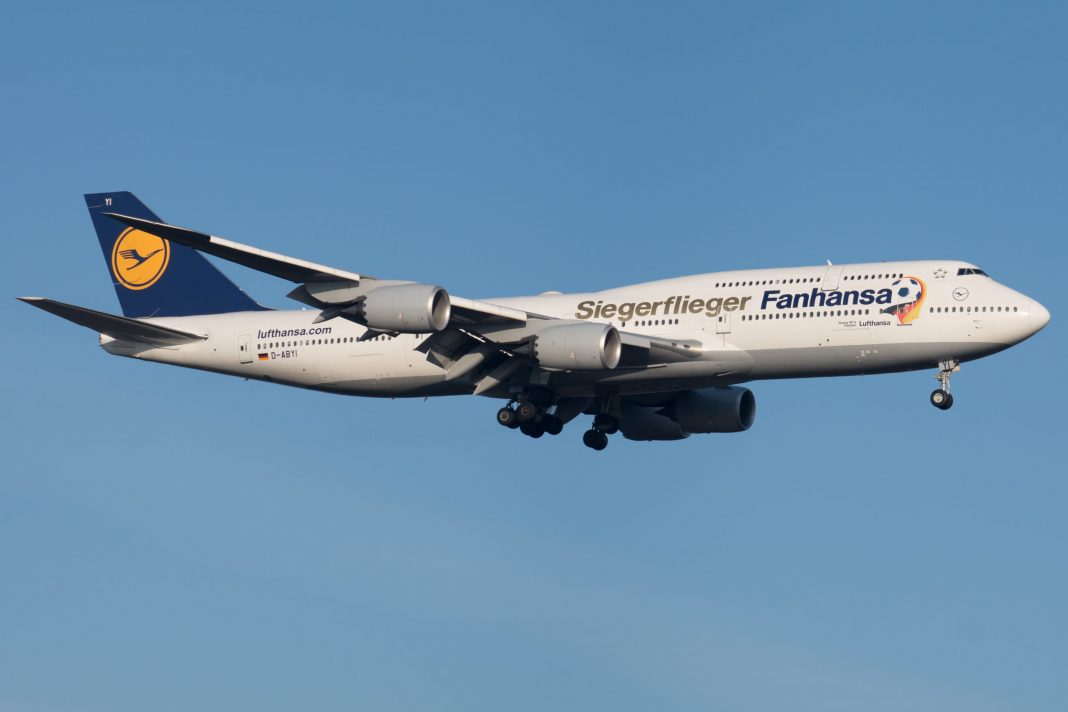The Boeing 747 is one of the most successful and beloved aircraft programs of all time. Beginning over half a century ago, Boeing has built over 1,500 planes across the 747 family before announcing the end of the program earlier this year.

However, the newest addition to the 747 catalog – the 747-8 – was nowhere near as successful as Boeing execs had hoped. While the freighter variant sold an acceptable number, the 747-8 passenger variant significantly underperformed. We explore exactly why this was the case.
Disappointing sales for the 747-8 Intercontinental
Boeing developed the 747-8 as competition for the successful A380 program by Airbus. The planemaker sought an aircraft with a capacity approaching 500 passengers and considered many designs before beginning 747-8 production by 2008. The freighter variant (747-8F) was introduced in 2011 before the passenger variant (747-8 Intercontinental or 747-8I) came out a year later.

At the time, the 747-8 was the longest aircraft in the world at 76.25m, an accolade it held until the 777-9 took to the skies this year. During the design phase, Boeing predicted around 300 orders for the plane, split equally between freighter and passenger variants. The program managed just half that figure: 107 freighter orders and only 47 for the passenger plane.

Why did so few airlines invest in the 747-8I?
There are many reasons why airlines ignored the 747-8I and chose other aircraft instead. Despite major improvements in efficiency and range on the 747-400, there were other planes on the market turning heads.
Airlines were looking to invest in more economical planes and opted for twin-engines rather than four-engine planes like the 747-8I. Despite early interest from many airlines, including British Airways and Emirates (both eventually choosing the A380), orders were underwhelming and Boeing eventually cut its production rate by 2013.

The Airbus A350 was in design and production at roughly the same period as the 747-8, and newer, more-efficient twin-engines such as the 777X were in development by the time the 747-8I took to the skies. With increasing pressure to cut down on costs and be environmentally-friendly, carriers weren’t interested in four-engine jumbos.
The cargo 747-8 saw considerable demand
Boeing can have few complaints about the sales of the 747-8F. Although orders didn’t quite reach up to expectation, Boeing still sold over 100 freighter 747-8s. One reason for the relative success of the freighter variant was the lack of any direct competition. Airbus had planned a cargo version of the A380 but canceled it, so the 747-8F was essentially the only extra-large freighter plane on the market at the time.

However, the passenger version simply didn’t get enough orders. In fact, Boeing ended production of the 747-8I back in 2017 as there were no remaining orders and continued to build the more popular freighter version. Boeing plans to see out its backlog of 747-8F orders before discontinuing the 747 program entirely – touted to be some time in 2022.
Do you think the 747-8I should have been more successful than it was? Let us know in the comments.
[ad_2]
Source link


